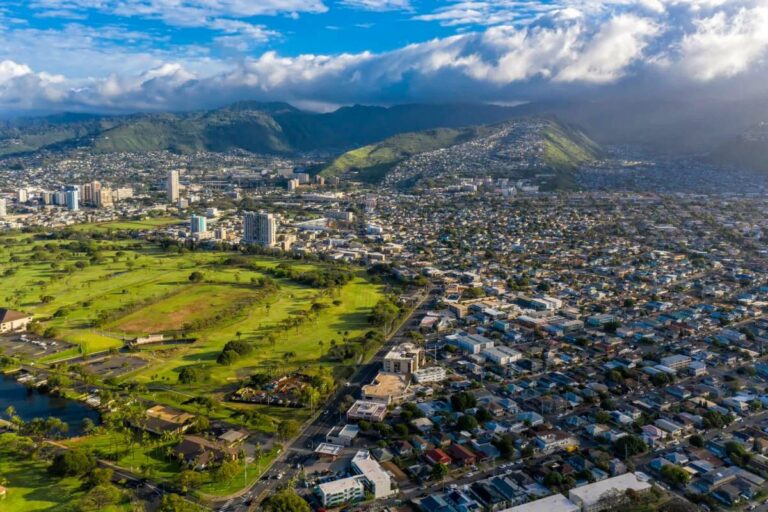Hawaiʻi Lawmakers Pass Resolution to Help Insurance Companies Sue Fossil Fuel Producers
Lawmakers in Hawaiʻi have passed a resolution that sets up insurance companies to lower policyholders’ coverage costs by suing fossil fuel producers over the recent spike in natural disasters. In April, the state legislature adopted SCR198 SD1, a non-binding resolution that encourages insurance providers to “reduce insurance costs on local residents by pursuing subrogation claims against polluters who knowingly engaged in misleading and deceptive practices regarding the connection between their products and climate change.”

Subrogation claims can enable insurance companies to recoup payouts to policyholders from a third party that has been deemed at fault. The resolution suggests that the dirty energy industry — built around polluting sources like oil, coal, and gas — has contributed to extreme weather events and related disasters that have wreaked havoc in Hawaiʻi. The 2023 Maui wildfires, which claimed over 100 human lives and caused an estimated $5.5 billion in damages, are a tragic example. The United States Geological Survey has determined that rising global temperatures have contributed to higher risks of severe droughts and storms, while the U.S. Environmental Protection Agency has linked the release of carbon dioxide and other heat-trapping gases to those rising temperatures.
The resolution alleges that some in the fossil fuel industry purposefully misled the public about these connections. The Center for Climate Integrity applauded the passing of SCR198 SD1, noting that it can be a “model for communities across the country struggling with growing housing and cost of living crises that are being supercharged by climate disasters.” While there’s no established precedent for insurers successfully pursuing subrogation claims against oil companies for climate-related damages, similar strategies are being explored in other disaster-vulnerable states.


